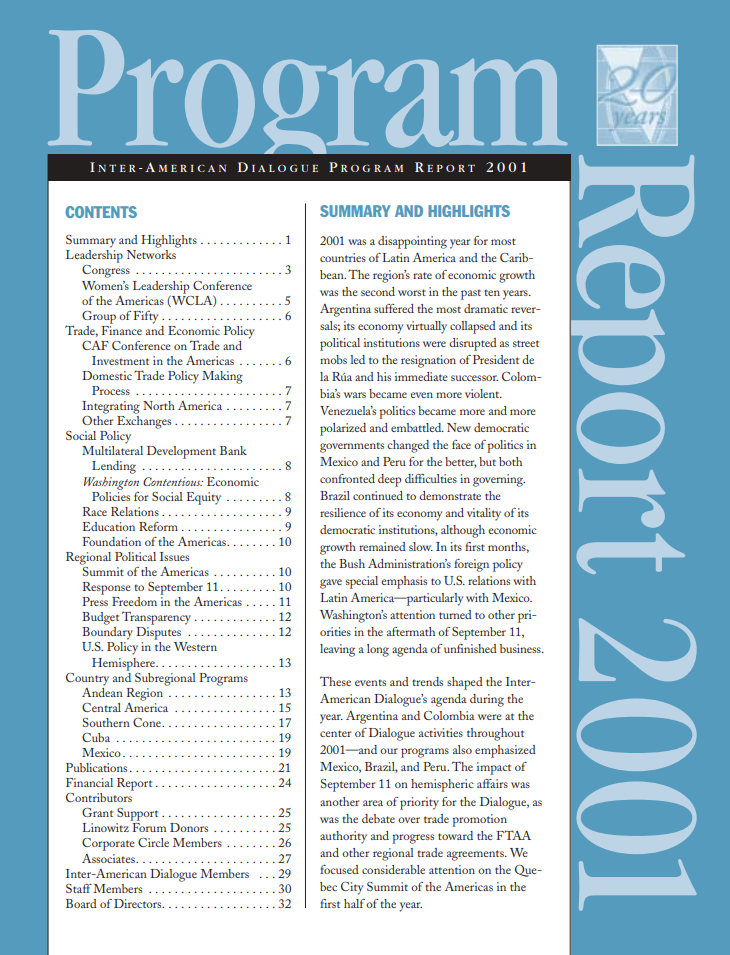2001 Program Report

2001 was a disappointing year for most countries of Latin America and the Caribbean. The region’s rate of economic growth was the second worst in the past ten years. Argentina suffered the most dramatic reversals; its economy virtually collapsed and its political institutions were disrupted as street mobs led to the resignation of President de la Rúa and his immediate successor. Colombia’s wars became even more violent. Venezuela’s politics became more and more polarized and embattled. New democratic governments changed the face of politics in Mexico and Peru for the better, but both confronted deep difficulties in governing. Brazil continued to demonstrate the resilience of its economy and vitality of its democratic institutions, although economic growth remained slow. In its first months, the Bush Administration’s foreign policy gave special emphasis to U.S. relations with Latin America—particularly with Mexico. Washington’s attention turned to other priorities in the aftermath of September 11, leaving a long agenda of unfinished business.
These events and trends shaped the InterAmerican Dialogue’s agenda during the year. Argentina and Colombia were at the center of Dialogue activities throughout 2001—and our programs also emphasized Mexico, Brazil, and Peru. The impact of September 11 on hemispheric affairs was another area of priority for the Dialogue, as was the debate over trade promotion authority and progress toward the FTAA and other regional trade agreements. We focused considerable attention on the Quebec City Summit of the Americas in the first half of the year



















